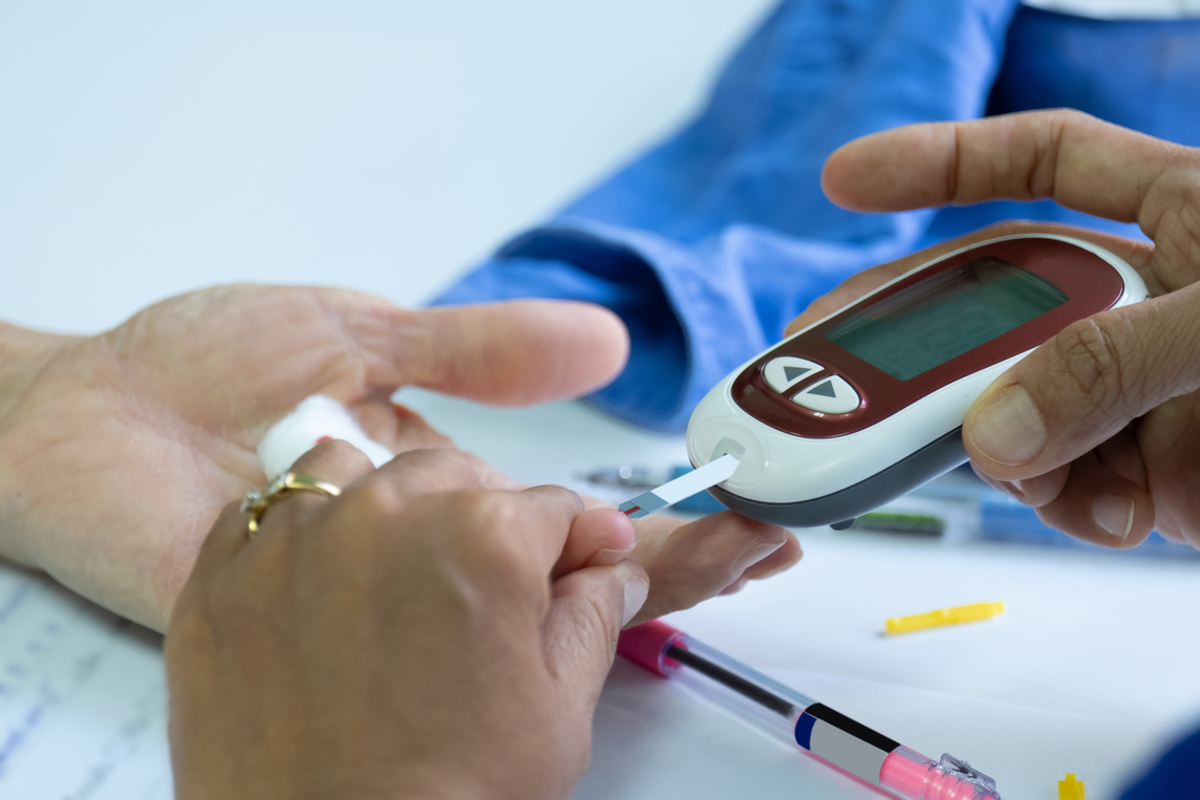Genes are the building blocks of our bodies, as they provide instructions to make everything that composes the human body. Therefore, genetics plays a big role in the development of different diseases. Diabetes is a condition in which genetics and environmental factors both play a role. Often, parents will wonder if their child will inherit diabetes if they themselves have it. Unfortunately, the answer is a little more complicated and there is no way of knowing whether or not your child will have the disease if you have it, though their risk will be increased.

Type 1 diabetes
Type 1 diabetes is an autoimmune disease, which means that it develops because the immune system goes haywire and starts to attack healthy tissues. In the case of type 1 diabetes, the immune system attacks pancreatic cells that make insulin (the hormone that metabolizes glucose). Genes that are involved in the immune system play a role in whether or not you get the disease. There are thousands of different variants of the same gene and depending on which variant you inherit, you are more or less likely to get the disease. Some variants are more common in specific populations. For example, Caucasians are more likely to get type 1 diabetes compared to other ethnicities.
It is important to keep in mind that even if you inherit genes that make it more likely that you will develop type 1 diabetes, it doesn’t mean that you actually will. This is because environmental factors also play a huge role in the development of diabetes. For example, in the case of identical twins who have the same genetic composition, one can get the disease while the other doesn’t.
So how high is your risk of developing type 1 diabetes if one of your parents has the disease? Turns out, it depends on various factors:
- If your father has type 1 diabetes, you have a one in 17 risk of getting the disease.
- If your mother has type 1 diabetes and you are below the age of 25, you have a one in 25 risk of getting the disease.
- If your mother has type 1 diabetes and you are above the age of 25, you have a one in 100 risk of getting the disease (same as everyone else).
- If your parent had diabetes before they turned 11, your odds of getting diabetes double.
- If both your parents have type 1 diabetes, your risk of type 1 diabetes goes up to one in four.
- If a parent has a disease called type 2 polyglandular autoimmune syndrome, then your risk of getting type 1 diabetes is 50 percent.
- If your parents don’t have type 1 diabetes, but you have a sibling who does, you have a five percent risk of getting the disease.
- If you have an identical twin that who the disease, you have a 50 percent risk of getting it.
Type 2 diabetes
It is known that type 2 diabetes is caused by both genetics and environmental factors, though the environment plays a bigger role in the development of the disease as obesity and sedentary lifestyle are major contributors to the disease. Often, it is hard to differentiate genetics from the environment as children are more likely to get the disease if their parents have it, but it is hard to know if that has to do with habits that are passed on (bad diet, lack of exercise) or genes.
Some studies have suggested that type 2 diabetes is partly genetic. To date, scientists have identified mutations in certain genes that can influence the risk of developing type 2 diabetes. The genes are involved in the production of glucose, regulation of glucose, and metabolism of glucose. While you can get genetic testing done to see if you are at a higher risk of developing the disease, the increased risk is actually very small. Other factors, such as body mass index, family history, high blood pressure and high cholesterol are much better predictors of whether or not you will develop type 2 diabetes.
- Polychronakos, Constantin, and Quan Li. "Understanding type 1 diabetes through genetics: advances and prospects." Nature Reviews Genetics 12.11 (2011): 781.
- Bluestone, Jeffrey A., Kevan Herold, and George Eisenbarth. "Genetics, pathogenesis and clinical interventions in type 1 diabetes." Nature 464.7293 (2010): 1293.
- Sladek, Robert, et al. "A genome-wide association study identifies novel risk loci for type 2 diabetes." Nature 445.7130 (2007): 881.
- Photo courtesy of SteadyHealth

